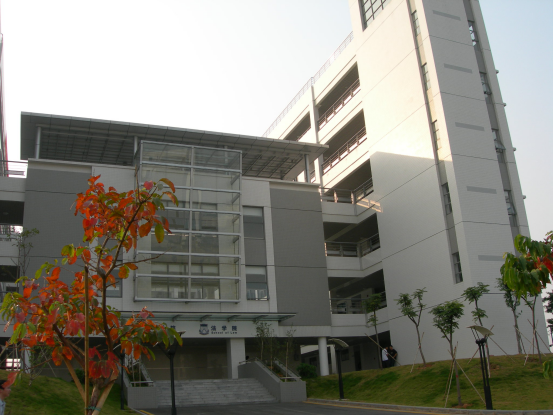The School of law is a subordinate college of South China Normal University (hereinafter SCNU) which is a highly ranked university in Guangdong province, a member of the prestigious national Project 211 as well as the more recent Plan 111.

The main gate of SCNU
The School of Law was formally established in 2004, but legal education at SCNU traces its history back to 1988. In that year the then-Department of Politics and Law began to enroll undergraduate law students. In 2010, the School of Law was granted the right to enroll students in its LLM and JM programs. In recognition of the rigorous research and teaching quality in the legal field, in 2012 the subject of law was chosen as one of the core disciplines of study of Guangdong Province. In 2012, the School of Lawyer, which is run by the School of Law, was established with the joint support of SCNU and the Guangdong Province Department of Justice and Guangdong Province Lawyers Society. In 2017, the Center for the Study of Inner-Party Law of SCNU was awarded with Guangdong Province Humanities and Social Sciences Key Research Bases (广东省普通高校人文社会科学重点研究基地 ).

The building of School of Law
There are currently 59 staff members in the School, including 18 professors and 17 associate professors. 40 of them have held visiting positions in famous foreign universities. All the members of the teaching staff have graduated from prestigious universities, such as China University of Political Science and Law, Peking University and Renmin University of China. Several professors won important awards at the national level or at the provincial level. The Institute of Criminology, The Institute of Social Law, and The Institute of Information and Communications Law of Guangdong Provincial Law Society are presided by professors from the School of Law. From 2013 to 2017, more than 160 articles in professional academic journals and more than 50 academic books written by the academic staff have been published. Some of these publications were issued in English. Several members of the teaching staff have been invited as legislative advisors or consultants to the People's Congresses of Guangdong Province or in the local legislative bodies of other cities. Since September 2015, the School has been an advisory body for Municipal People’s Congress Standing Committee of Yunfu city.
The School of Law stresses the combination of the students' academic training with the cultivation of their legal practical abilities. A five-fold-pedagogical method (the so-called "Five-in- One") is directed at enhancing students’ legal practical skills. Such a method is based on the combination of "Observing Court Trial", "Case Analysis", "Laboratory Teaching", "Legal Practice" and "Community Legal Services". A group of lawyers joined the academic staff as tutors to train the students in legal clinic and organize moot courts in the School of Law. Since 2004, 55 student internships have been set up in various law firms and other judicial bodies such as the People’s Courts, the People's Procuratorates, the Arbitration Committees etc. The passing rate of undergraduate students in the annual National Judicial Examination in 2017 is 63.78%. The employment rate of bachelor graduates is more than 98%. The former students’ rate of entrance into postgraduate studies is above 20%.
In cooperation with partner colleges including the Hillary Rodham Clinton School of Law of Swansea University (UK), University of Lincoln (UK), Western Sydney University (AU), Oriel College of the University of Oxford (UK), Magdalene College of the University of Cambridge (UK) and other well-known international institutions, the School of Law provides students with rich opportunities to learn from international exchanges, including inviting distinguished professors to offer academic talks to students, hosting international conferences, providing summer-school programs and organizing students to attend international competitions. Recently students from the School of Law distinguished themselves at 15th CIETAC (the China International Economic and Trade Arbitration Commission) Cup Arbitration Moot Court, reaching the third position.

International Cooperation